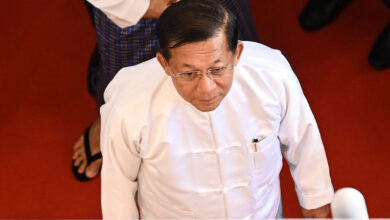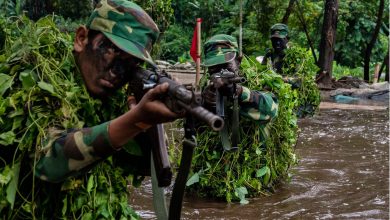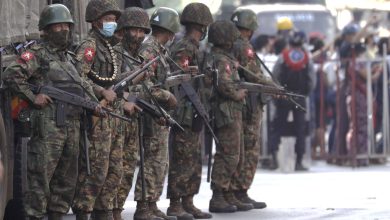
Telenor Group’s Asia head Jørgen C. Arentz Rostrup wrote in the Norwegian press earlier this month that the company’s decision to leave Myanmar was one made “with a heavy heart.”
It is a sentiment which, sadly, misses the point.
Telenor recently sold their Myanmar subsidiary to the Lebanon-based M1 Group—a package which included years of sensitive customer data—with the knowledge that M1 has ties with the military and that Telenor’s actions may be in breach of regional sanctions as well as business and human rights commitments.
At the request of the Australian Centre for International Justice, we provided legal guidance concerning these proceedings in a legal memo to enable the Netherlands-based Centre for Research on Multinational Corporations (SOMO) to call upon both Telenor and M1 to acknowledge their responsibilities to both employees and customers in Myanmar.
M1 has so far been silent. Rostrup has tried to minimise Telenor’s role and obligations. That is why it is now imperative that the Norwegian government investigate whether Telenor has prioritised finances over people, and hold the company to account for a decision that has put millions at risk.
Telenor garnered much accolade for its expansion into Myanmar, which was seen by many as contributing to a process of democratisation in accordance with the wishes of the people. Yet ethical and principled investment also must be accompanied by the responsibility to engage in ethical and principled divestment.
Rostrup has suggested it was not possible for Telenor to withdraw from Myanmar in accordance with its values and in compliance with human rights principles. This assertion should not be taken at face value, when the sale still netted more than US$105m—a sum, which it must be noted, is significantly less than the $782m at which the network was once estimated to be valued.
No civil society organisation or human rights advocate has denied that foreign companies operating legitimately and ethically in Myanmar have needed to make difficult operational choices since the coup in February 2021.
Demands issued by civil society within this complex matrix include calls for responsible disengagement, which involves complying with human rights responsibilities under the UN Guiding Principles on Business and Human Rights, Organisation for Economic Co-operation and Development (OECD) Guidelines for Multinational Enterprises, sanctions regimes, and other applicable international law.
If selling Telenor Myanmar was the only option, as Rostrup suggests, why sell more than seven years’ worth of customer metadata, especially if such a sale is in violation of both sanctions and of the very human rights principles Telenor purports to uphold?
Telenor was aware at the time of sale that M1 would transfer 80 percent of its ownership to Myanmar military-linked firm Shwe Byain Phyu. Rather than consider the legal implications of such a sale, Rostrup has instead focused criticism on activists who have objected to the move, suggesting that there was no alternative. In fact, certain clear alternatives—including retaining past data—do not appear to have been fully explored.
SOMO, through their publication of our legal memo, called for Telenor to be transparent about the due diligence it had undertaken concerning the purchasers of its Myanmar unit. It seems remarkable that Telenor is now citing corporate “survival” instead of giving full and public consideration to their human rights impacts and responsibilities.
Telenor’s public disclosures also leave much to be desired. Telenor has only said it screened Shwe Byain Phyu for sanctions and has remained silent on human rights due diligence.
Before making a decision on the sale, it was incumbent on Telenor to at least assess risks pursuant to Principle 4 of the UN Guiding Principles on Business and Human Rights: this would have exposed liabilities created before the sale, as well as responsibilities over the sale, and potentially for the facilitation of such abuses in the future.
Myanmar’s National Unity Government (NUG), its citizens, as well as Telenor Myanmar’s employees and 18m customers, deserve to know why Telenor is not being transparent about such issues and what Telenor may already know. It may be that some of the $105m could or should be retained for the benefit of customers and employees who have suffered whilst Telenor had holdings in Myanmar or who will suffer in the future as a result of the sale.
Importantly, Telenor’s majority shareholder is the Norwegian state itself. The sale is therefore not solely a matter for the Telenor Board of Directors. UN Guiding Principles and OECD guidelines only function if states and corporates are both engaged, particularly where an entity functions because of both.
Our legal memo, setting out potential international legal issues arising from this sale to these particular companies, cited correspondence from Telenor employees and from the NUG asking that Telenor reconsider its choice of purchasers. This memorandum was addressed directly to the CEOs of Telenor Group and Telenor Myanmar respectively, as well as to the Norwegian Minister for Trade and Industry who exercises the majority shareholder powers of the Norwegian state.
By now, none of the major stakeholders can say Telenor or the Norwegian government were unaware of M1’s human rights record and Shwe Byain Phyu’s links to the military that carried out last year’s coup.
Telenor and the Norwegian government risk giving legitimacy to the repression and crackdowns carried out by this same military. In dismissing requests for consultation with the NUG as a “parallel reality”, they fail to give dignity to the human rights obligations they profess to respect.
The speed of the sale and Telenor’s defensive media campaign at the very least suggest a hasty withdrawal based on pragmatism and profit rather than on people and principle. It is now the responsibility of the Norwegian government to investigate the sales process, ensure Telenor provides available remedies for victims, and pursue accountability for any breaches of sanctions or international law.
Doctor Felicity Gerry QC is Counsel on the list at the International Criminal Court and at the Bar of England and Wales and Victoria, Australia. Daye Gang is Counsel at the Victorian Bar in Australia.



